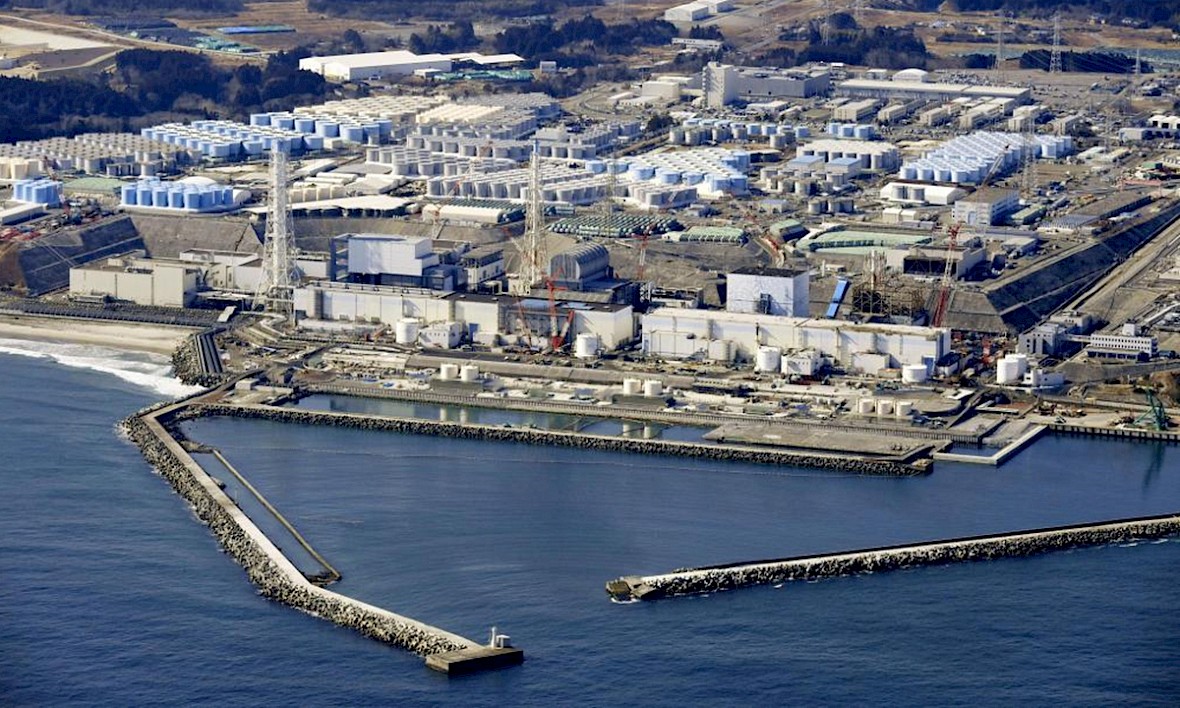China’s top nuclear scientist lambasts dumping radioactive wastewater, proposes safer alternatives

Toxic decision
As public trust in the Japanese government was shaken like the earthquake that hit Fukushima Nuclear Power Plant, China’s top nuclear scientist joined the chorus of criticism to express deep disappointment over Japan’s recent decision to dump Nuclear-contaminated Fukushima wastewater into the ocean.
Zhou Yongmao, an academician at the Chinese Academy of Engineering, who spent over 60 years in nuclear engineering starting with participating in designing China’s first nuclear submarine in 1958, sounded his warning over the decision of Japan in an exclusive interview with the Global Times.
The expert called the decision very concerning and irresponsible, as the massive amount of nuclear fission and radioactive elements would affect both marine life and people.
Urging Japan to take alternative solutions that are “clearly better treatments,” he said Japan chose “the worst and most harmful one among them all.”
Zhou said Japan’s promise to dilute radioactive substances to the “required standard” would be difficult to track and verify, given the technical burden and human cost.
He called for greater transparency on specific disposal plans, and sample testing data to be published under the supervision of the international community if the discharge is unavoidable.
Isotope concerns
To prevent the nuclear leakage in 2011 caused by the earthquake from getting worse, Japan’s Tokyo Electric Power Company (TEPCO) chose to inject seawater into the reactor cores to cool the reactors. Up to now, the Fukushima nuclear power plant has stored 1.25 million tons of the nuclear-contaminated wastewater in tanks.
The contaminated water will likely fill up all the available tanks in the power plant by the summer of 2022, TEPCO said, which prompted the Japanese government to approve the decision of dumping the treated water, still containing radioactive substances, into the ocean.
Though Japan said the isotope tritium, a radioactive hydrogen isotope, is not harmful to human health in small quantities, Zhou warned that the isotope can easily bind to other molecules, turning hazardous to the human metabolism and DNA, especially for infants, in the long run.
“In terms of toxicity, tritium oxide, that is, tritium dispersed in seawater is the most dangerous. It can enter the body through inhalation and damaged skin. If someone with a skin wound comes into contact with it, it may increase the risk of developing cancer later on,” Zhou told the Global Times.
Current scientific research shows that tritium oxide is generally indistinguishable from normal water and can move rapidly through the environment in the same way as water.
Another radioactive substance, carbon-14, can also pose risks to humans and fish. Greenpeace East Asia previously revealed to the Global Times that the Advanced Liquid Processing System (ALPS), the pumping and filtration system that TEPCO promised to use for decontamination, cannot remove tritium or carbon 14, and also does not remove all of the other radioactive isotopes such as strontium-90, iodine 129, and cobalt-16.
In general wastewater treatment in the nuclear industry, exposure to all radioactive materials requires frontline staff to wear a full set of sealed protective clothing due to its dangers. And since it is unknown just how harmful each of these chemicals will be in the long run, Japan was too quick to declare them harmless, Zhou argued.
He also lambasted the Japanese government’s indescribable and confusing move to use a tritium mascot to advertise the “safety” of radioactive wastewater and described it as “very immoral and seriously misleading.”
Zhou rebutted Japan’s sophistry, stressing that discharging radioactive wastewater from the Fukushima nuclear power plant, which recorded the highest-level nuclear accident, is completely different from releasing wastewater from normally operated power plants.
The discharge of sewage from a normally operating nuclear power plant complies with internationally accepted standards because its radioactive material and fissile elements are completely stored in a sealed capsule at the reactor core. However, Fukushima’s waste seawater contains about 30 chemical elements, more than 80 fission products, and more than 200 radioactive isotopes, making it a potent source of contamination if discharged freely, said Zhou.
Once they are exposed to the air, the level of pollution is unimaginable. Some of these elements remain active for as long as 10 million years, which can have dire consequences for future generations, he noted.
Cheapest option
Prior to making the decision, reports said TEPCO had studied several versions of the nuclear wastewater treatment plan, such as building additional storage tanks and capacity, relocating tanks, going underground after solidification, dumping it into the sea after treatment, and evaporating the water; however, it ended up with the cheapest plan which the Japanese government described as the “best option.”
TEPCO claimed that after treatment, the radiation levels of wastewater to be dumped into the Pacific Ocean will be lower than that of drinking water.
“However, who will supervise and monitor its implementation? How can anyone ensure that the concentration of hazardous substances in each unit is within the acceptable range? Who will pay for the huge human and technical costs? Especially, the tracking time span that can be as long as 20 years,” Zhou questioned.
Zhou believes that leaving the wastewater going deep underground after solidification is a relatively better option for safety and health concerns, though with higher costs.
“But the Japanese government clearly does not want to pay the bill, preferring to push the risk on to others,” Zhou said.
There might be a discussion in the international community about how more countries can assist Japan to go through the crisis through sharing the cost or providing aid for alternative treatments, Zhou anticipated.
If the discharge is inevitable, it must be subject to international supervision, Zhou stated saying that the IAEA should launch a long-term and strict monitoring system over the radioactive water and publish data in a timely manner with the collaboration and supervision of other neighboring countries.
You can return to the main Market News page, or press the Back button on your browser.

